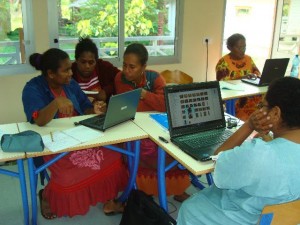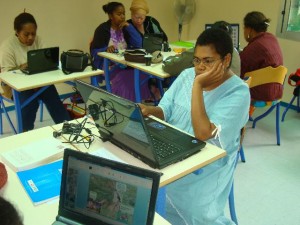Print  |
|


Learning how to count in first language in order to improve counting skills in second
Posted by Gérard Lavigne on November 7, 2010
Gérard Lavigne is a professor of mathematics since 1978. He has undertaken a research and action program on “understanding the inaccessibility of scientific concepts and courses of study for kanak and oceanian children in New Caledonia “.
As a member of the Centre des Nouvelles Etudes sur le Pacifique (CNEP), he promotes awareness of ethno-mathematics among students of Oceanian Languages and Cultures, at the University of New-Caledonia.

A case for an ethno-mathematical approach to numbers in new-caledonian schools
Mathematics are indeed universal, but is the teaching of mathematics too, as developed in given cultures and languages ? In New Caledonia this question is being addressed in very concrete terms : should the French school system be replicated there ? Results of this policy show that 20% of oceanian and kanak children end school without a diploma. Examples of kids reaching 6th Grade without having built a positive relationship to numbers are everything but rare.

One explanation for this would be that children learn how to count in French, which for the majority of them is not their mother tongue. And just as orthography is not transparent in French (pronunciation often being inconsistent with spelling), neither is the number-naming system. The French language mixes bases 10 and 20 with very numerous irregularities, making it difficult to build a positive relationship to numbers.
But what can be said about how Kanak and Oceanian languages speak numbers ? Polynesian languages, such as Tahitian, Wallisian, Futunian, Maori or Samoan use a genuine base 10. And 12 numerical words are enough to count up to 1000. Kanak languages, on the other hand, generally speak in base 20 with a frequent sub-base 5. This means that for 6 we say : “5 and 1”, for 7 : “5 and 2”, and so forth. In both cases, regularity allows to construct numbers easily. And this, precisely, is a very favorable condition for establishing a positive relationship to numeration.
Rémi Brissiaud, who is a specialist in didactics of mathematics and a senior lecturer at the Versailles IUFM (post-graduate teacher training institute), has established this very clearly : « the way children take ownership of numbers depends on the way numbers are ‘spoken’ in their language, family and in school ».
Thus by learning how to count in their mother tongue, kanak and oceanian children will be able to build a positive relationship to numbers, and subsequently operate the necessary conversion to french numeration. Isn’t this what school should aim at in intercultural settings?








